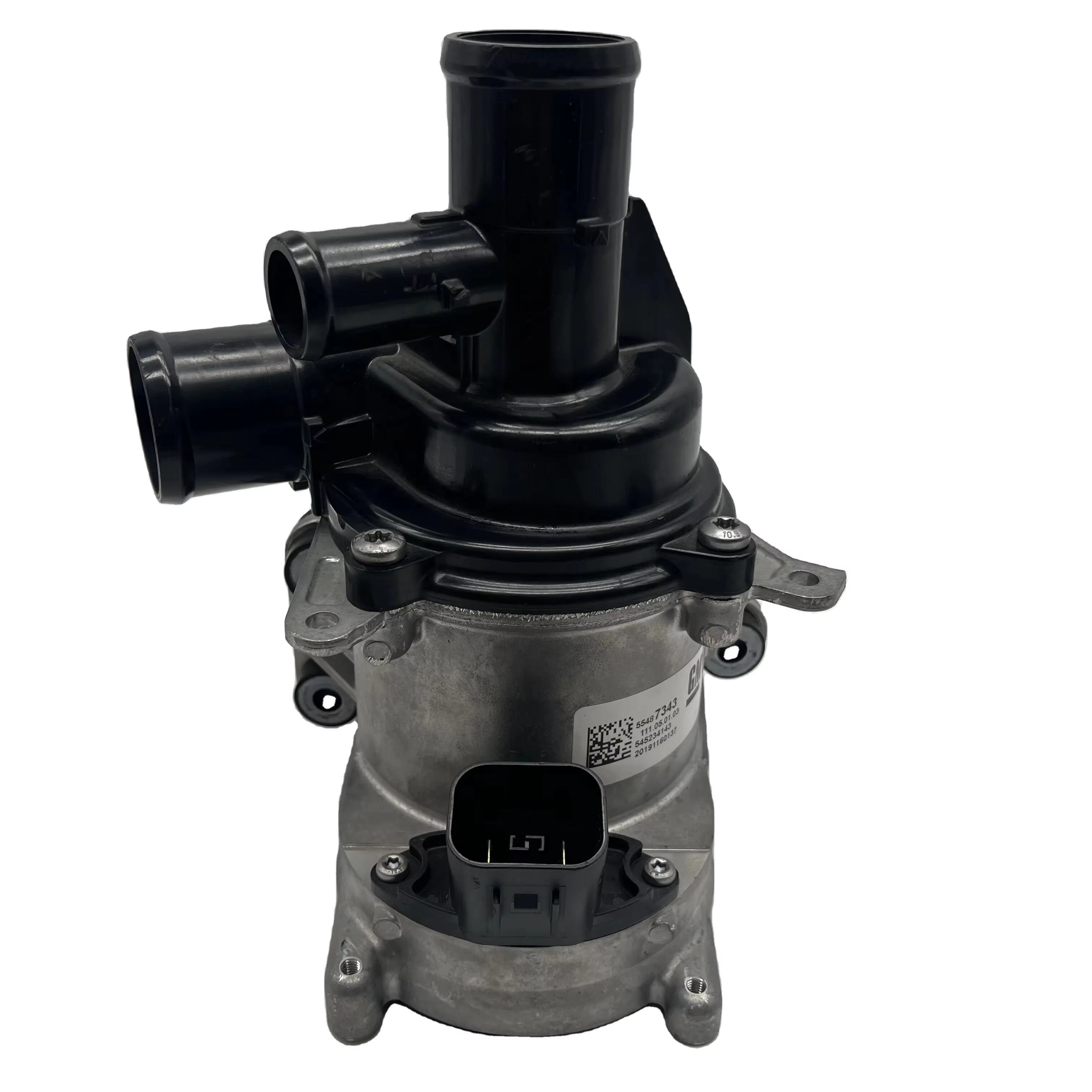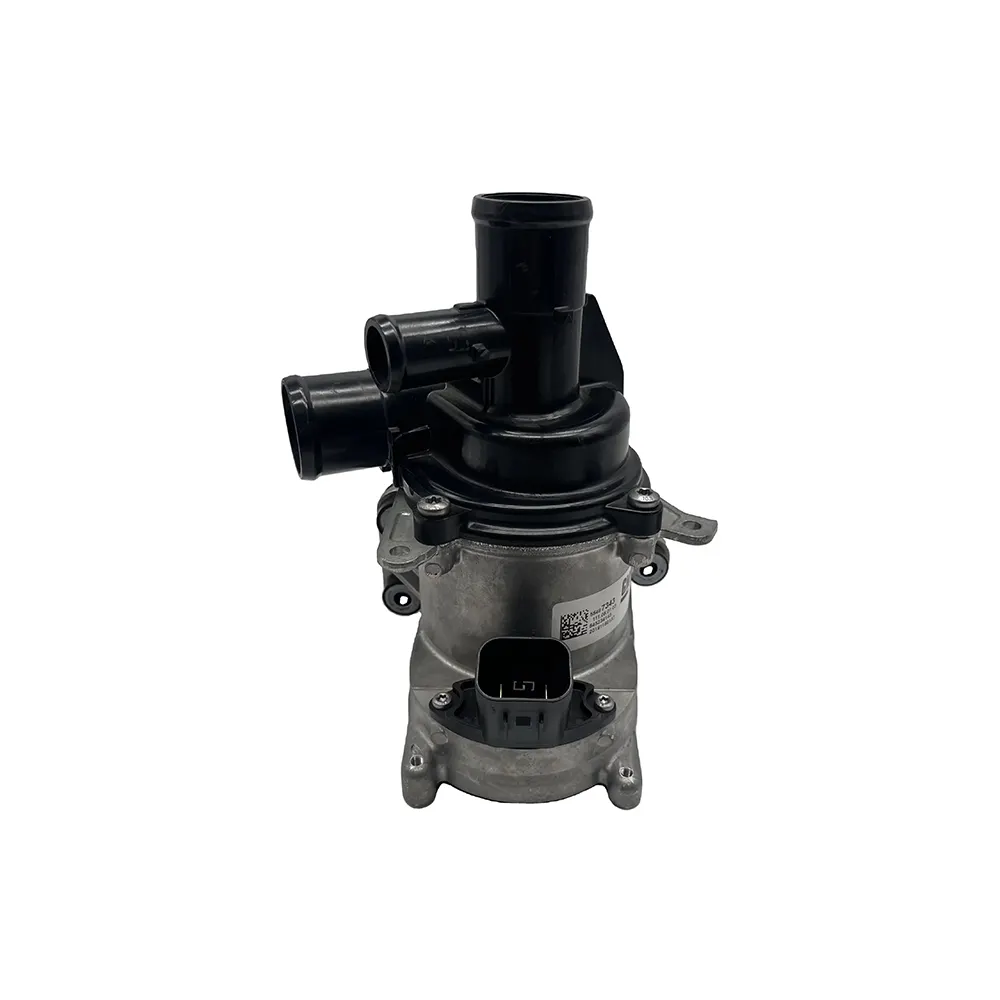Choosing High-Performance Parts for Efficient Engine Cooling
Selecting the appropriate component for your vehicle's cooling system is vital to ensuring long-term engine health. Among these components, auto water pumps play a critical role by circulating coolant between the engine and the radiator. Choosing the right auto water pump can improve performance, increase efficiency, and prevent costly engine damage.
Understanding the Role of Auto Water Pumps
Why Auto Water Pumps Are Essential
Auto water pumps help regulate engine temperature by pushing coolant through the engine and into the radiator. This continuous cycle removes excess heat, preventing the engine from overheating. Without a functioning pump, your vehicle would not be able to maintain a safe operating temperature.
How They Work in the Cooling System
Auto water pumps are usually driven by the engine's belt or chain and operate whenever the engine is running. As the impeller inside the pump spins, it creates centrifugal force that pushes the coolant outward into the engine passages and back to the radiator. This circulation ensures efficient temperature control throughout your vehicle’s system.
Factors to Consider When Choosing Auto Water Pumps
Vehicle Compatibility
Not all auto water pumps are created equal. It's essential to select one that matches your vehicle's make, model, year, and engine type. Even slight variations in design or fitment can lead to performance issues or installation difficulties. Check your vehicle’s manual or consult with a professional to ensure compatibility.
Material and Durability
Auto water pumps are commonly made of aluminum, iron, or high-grade plastic. Consider materials that can resist corrosion and withstand high temperatures. Pumps with high-quality bearings and seals also tend to last longer and perform better under demanding conditions.

Mechanical vs. Electric Auto Water Pumps
Key Differences in Operation
Traditional mechanical auto water pumps rely on the engine to operate, whereas electric pumps function independently. Electric pumps can offer more precise control over coolant flow, which helps modern engines achieve better thermal efficiency.
Benefits of Each Type
Mechanical auto water pumps are simpler and often more affordable. They're suitable for most standard vehicles. On the other hand, electric auto water pumps provide benefits such as variable flow rates and improved performance in hybrid or high-efficiency engines.
Performance and Driving Needs
Daily Driving vs. High-Performance Use
If your vehicle is used for commuting or city driving, a standard OEM-replacement auto water pump may suffice. However, if you drive in extreme temperatures or require high output (e.g., towing, racing), consider a high-performance auto water pump that delivers greater coolant flow and durability.
Environmental Considerations
Where and how you drive can impact your pump choice. For instance, hot climates demand pumps with high thermal resistance. If your region experiences freezing temperatures, ensure your pump and coolant system are winter-ready.
Installation and Maintenance
Ease of Installation
Some auto water pumps are direct-fit replacements that require no modifications, while others may need custom brackets or additional components. Choose pumps with clear instructions and, ideally, those designed for simple installation.
Routine Maintenance Tips
Check the auto water pump regularly for leaks, corrosion, or noise. Replace coolant according to your vehicle’s maintenance schedule, as old coolant can damage the pump. Proper care helps extend the life of the pump and the entire cooling system.
Common Warning Signs of Pump Failure
Overheating and Dashboard Alerts
One of the first indicators of a failing auto water pump is engine overheating. If you see warning lights or temperature gauge spikes, the pump may not be circulating coolant properly. Address these issues immediately to avoid engine damage.
Unusual Noises or Coolant Leaks
Whining or grinding noises from the engine bay can signal a failing bearing in the pump. Puddles of coolant under the vehicle or around the pump housing are also clear signs that a replacement may be needed soon.
Our Commitment to Quality Auto Water Pumps
Superior Engineering and Testing
Our auto water pumps are designed to meet or exceed OEM standards. Each unit undergoes rigorous testing to ensure optimal performance under all conditions, providing you with reliability you can trust.
Wide Product Range and Fast Delivery
We offer a diverse selection of auto water pumps compatible with many vehicle models. With most products in stock, we ensure quick shipping and responsive customer service, reducing vehicle downtime and enhancing satisfaction.
FAQ
What happens if I choose the wrong auto water pump?
Installing an incompatible pump can lead to improper coolant circulation, overheating, and even engine damage. Always confirm fitment before purchase.
Can I install an electric auto water pump in place of a mechanical one?
It depends on the vehicle. Some cars can be retrofitted with electric pumps, but the process may require custom wiring or modifications. Consult a professional before attempting this change.
How often should auto water pumps be replaced?
Most auto water pumps last between 60,000 to 100,000 miles. Refer to your vehicle manufacturer’s recommendations and inspect the pump during major services.
Are aftermarket auto water pumps reliable?
Many aftermarket options offer excellent performance, especially when sourced from reputable suppliers. Look for products that meet OEM specifications and offer warranties.
What are signs that my auto water pump needs immediate replacement?
Overheating, coolant leaks, steam from the engine, or unusual engine noises are all red flags. Prompt replacement can prevent further damage.
Table of Contents
- Choosing High-Performance Parts for Efficient Engine Cooling
- Understanding the Role of Auto Water Pumps
- Factors to Consider When Choosing Auto Water Pumps
- Mechanical vs. Electric Auto Water Pumps
- Performance and Driving Needs
- Installation and Maintenance
- Common Warning Signs of Pump Failure
- Our Commitment to Quality Auto Water Pumps
- FAQ

